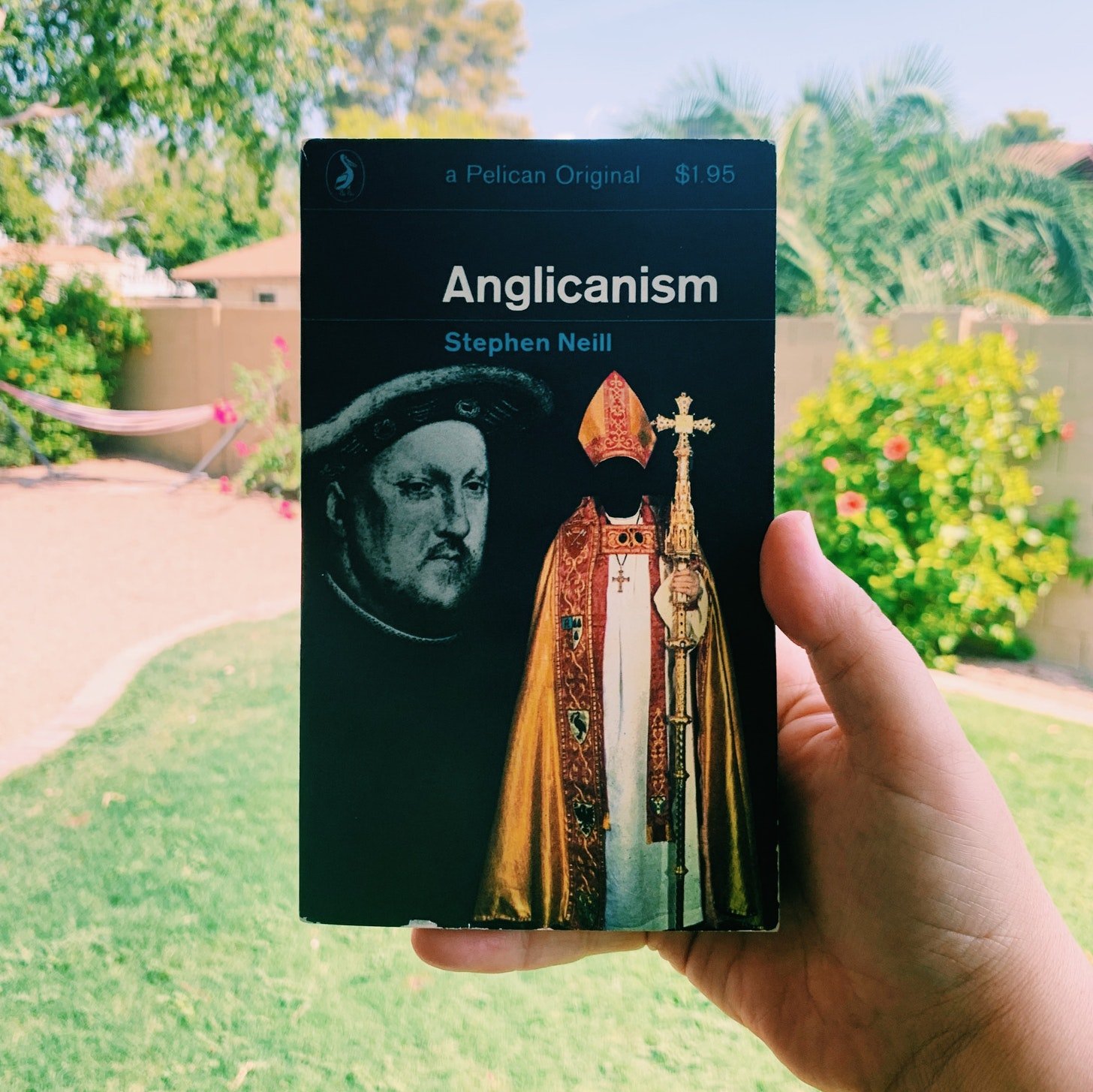Anglicanism
Were I adept at pandering to the masses (were I strategic, for that matter, about maximizing affiliate kickbacks), I would definitely not be telling you about this next book. But here I stand; I can do no other.
Anglicanism by Stephen Neill was first published in 1958 and has been out of print for decades. My copy is a 1965 Pelican paperback with an original price of $1.95. Like most paperbacks old enough to receive AARP mailers, it has that musty old book smell. Spending time with this book over the past few weeks, I’ve handled it gently, fearing the very real possibility of disintegration. Thankfully, the spine has so far remained intact.
It’s a surprisingly sturdy book. Which is fitting.
When Katie and I tell people what led us into Anglicanism, sturdiness is one of the words we’re likely to use. It’s not a word that sounds especially great coming off the tongue. And it’s kind of boring as a concept, I know. But when you need something to be sturdy, well, you need it to be sturdy. And at a time when we found ourselves suddenly without a church home, that’s exactly what we needed. Years later, we haven’t stopped needing it.
Innovation has its place in science and business and other problem-solving endeavors. But innovation is overrated when it comes to church. We came to Anglicanism well acquainted with churches with ambitious leaders bent on being first, best, biggest, boldest – and whose members demand more, more, more. It was exhausting. And spiritually speaking, it felt structurally unsound.
We needed a church and a tradition that were sturdy enough to withstand the storms of life, a church that wasn’t constantly tinkering with everything from lighting fixtures to load-bearing walls. We were under no illusions that Anglicanism would be perfect, and it hasn’t been – Lord have mercy, it hasn’t been. But at its best, one of this tradition’s enduring attributes – embodied week by week in Sunday worship in congregations around the world, including ours here in Phoenix – is its sturdiness.
As to the book at hand, Anglicanism is an engaging and conversational survey of the complicated history of the tradition over the past several centuries. Stephen Neill (1900-1984), an Irish Anglican who served as a bishop in India, begins his account with the church in England before the Reformation, continues through Bloody Mary and Thomas Cranmer and the first Book of Common Prayer, and concludes in the mid-twentieth century, by which time Anglicanism had become a diverse global communion with a rich (and at times problematic) array of local expressions. It’s a realistic accounting of the story, warts and all. It’s also informed by a steady, quiet hope.
There’s a lot in this book that reinforces the notion of Anglican sturdiness. But there’s a lot of innovation in the story as well, and I take that to heart. There are times when sturdiness becomes stuckness, and that’s a problem. It’s one thing to know you’ve inherited nuanced, hard-won wisdom and to want – with all your heart – to safeguard it; it’s another thing to believe you never need to change.
